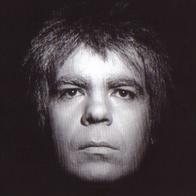Comedie 19:00
dal 19/2/2003 al 2/3/2003
Segnalato da
19/2/2003
Comedie 19:00
Kunsthalle Wien, Wien
Comedie is the cinematic adaptation of Beckett's theater piece Play, which was first performed at the Pavillon de Marsan in the Louvre in 1963. The scandal resulted from the fact that Comedie was not theater or film in the traditional sense: Instead, it made the boundaries between theater, performance and experimental film porous through the use of a minimal expressionism and a new cutting technique, which later was implemented for electronic music.

A Film by Samuel Beckett and Marin Karmitz
21 February - 2 March, 2003; hall 2
Premiere screening and discussion: Thursday, 20 February, 7 p.m.
When the Kunsthalle Wien showed Beckett's complete film oeuvre during the exhibition Samuel Beckett/Bruce Nauman (2000), Comédie (19 minutes, 35 mm film, 1966), which was forgotten following its scandalized premier at the Venice Biennial in 1966, had not yet been rediscovered.
Comédie is the cinematic adaptation of Beckett's theater piece Play, which was first performed at the Pavillon de Marsan in the Louvre in 1963. The scandal resulted from the fact that Comédie was not theater or film in the traditional sense: Instead, it made the boundaries between theater, performance and experimental film porous through the use of a minimal expressionism (masks, hard black and white contrasts) and a new cutting technique, which later was implemented for electronic music. The content of Play, a story of love and jealousy, was deformed into a cacophonic grotesque through the formal-aesthetic means used in the film. Marin Karmitz, the French filmmaker in the milieu surrounding the Nouvelle Vague, saw Play at its premiere. Later he was introduced to Beckett by Jérome Lindon, the author's publisher, whereby the idea for the film arose. Before Comédie, Beckett had made Film with Buster Keaton, whose improvisation constituted a considerable problem for Beckett. Contrastingly, he was able to realize his propensity for perfection and artificiality in Comédie in cooperation with the kindred spirit he found in Karmitz.
The film was first made available to a wider public in 2001, when it was shown anew at the Venice Biennial. Comédie is a rare film document, which anticipates the methods of modern music videos and the rhythms of hip hop in its avant-garde cutting techniques and camera and technical manipulation.
An eponymous book has been published on the film with an interview featuring Elisabeth Lebovici and Marin Karmitz and a text by Michael Glasmeier and Gaby Hartel (ed. by Caroline Bourgeois, Paris, 2001).
The historic film Comédie (1966) is presented with the contemporary film too soon for sorry (2001) by Katharina Weingartner. Only at first glance do the two works represent fully different approaches to different themes. In both, social and interpersonal relationships are brought into the context of a rhythmized form, which transforms language and its content into human resonance bodies.
too soon for sorry D/USA/A 77:00, 2001
A film by Katharina Weingartner
Director: Katharina Weingartner
Camera: Wolfgang Lehner
Editing: Cordula Werner
With its expressive style this music has taken on the function of a weapon in the occupation of public space in a literal sense. Aided by powerful stereo systems and oversized bass boosters, black youths are not only increasing their own aural enjoyment - 'pump up the volume!' They are also taking part in an indirect territorial war. This 'noise' creates a form of cultural resistance that cannot be ignored, especially when combined with texts against the state and the police.
Robin D.G. Kelley
Race Rebels
Reflecting on the culture and way of life of prisoners, too soon for sorry generates its political context with the help of the musical and cultural aesthetic of urban Afro-Americans and Latinos - the protagonists of the film. The music - mixed live to the cut by a DJ in the cutting room - contains direct, pointed, frequently enraged lyrics and often political content referring to the social reality of its surroundings as well. In its ductus and syncopated, bass-oriented driving rhythm, this music (and the cut 'based' on it) represents a social realism that is completely missing in conventional documentary films with political/social content, while in the music industry it is at most in demand as a booster shot of rebellion for white consumer yearnings.
The film is cut in a heavily syncopated rhythm, and the content gets to the point as directly as the music. Through the specific articulation forms of Afro-American and Hispanic youth culture, the film reflects the humanity of the young prisoners, who are confronted by an external world overpowered by fear and compulsions to normalize.
Curators: Caroline Bourgeois (Paris), Sabine Folie (Kunsthalle Wien)
____________
PROGRAM
Thursday, 20 February 2003
7 p.m. too soon for sorry followed by Comédie
ca. 8:30 p.m. discussion with Caroline Bourgeois (curator, Paris), Katharina Weingartner (director, New York) and Sabine Folie (curator, Kunsthalle Wien)
Saturday, 22 February 2003
4 p.m. too soon for sorry (Director Katharina Weingartner is present)
Thursday, 27 February 2003
8 p.m. too soon for sorry
Daily 10 a.m. to 7 p.m., Thursdays 10 a.m. to 10 p.m.
Comédie - a film by Samuel Beckett and Marin Karmitz
Information and photographic materials: Claudia Bauer, KUNSTHALLE wien, Museumsplatz 1, 1070 Vienna, Austria
T +43-1-521 89-1222, F +43-1-521 89-1220
Daily 10 a.m. - 7 p.m., Thu. 10 a.m. - 10 p.m.
Infoline +43-1-52189-33
The historic film Comédie (1966) is presented with the contemporary film too soon for sorry(2001) by Katharina Weingartner.
KUNSTHALLE wien
Museumsplatz 1
A-1070 Wien
Tel: +43-1-521 89-1221
Fax: +43-1-521 89-1220



